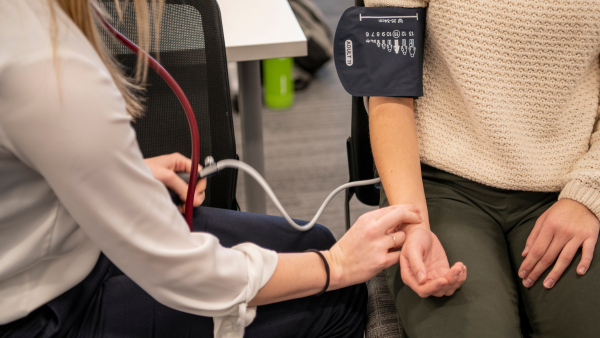June 20, 2024
$1.48 million HRSA grant awarded to St. Scholastica’s PA Medicine program
The Health Resources and Services Administration (HRSA) of the U.S. Department of Health and Human Services (HHS) has awarded The College of St. Scholastica a $1.48 million grant to support the Behavioral Integration in Rural and Community Health (BIRCH) Project. This initiative is designed to increase behavioral health in underserved communities by fostering a new generation of physician assistant (PA) students prepared to meet healthcare challenges in rural settings and deliver comprehensive integrated behavioral health care.
The BIRCH Project, led by Dr. Holly Levine of the PA Medicine program, is on a mission to bridge the gap in primary care, mental health and substance use disorder services across rural landscapes. With a generous grant of $1,488,070, HRSA has laid the foundation for a five-year project that seeks to enhance the quality of healthcare in areas most in need.
“This grant represents a monumental step towards removing barriers to mental health services in rural and underserved communities,” explained Dr. Levine. “Thanks to HRSA’s support, we will train the next generation of PAs who are not only equipped to tackle the unique challenges of rural and underserved healthcare but are also deeply committed to integrating behavioral health into primary care.”
Setting its sights on enriching the educational journey of PA students, the BIRCH Project is integrating updated curricula infused with real-world challenges faced in rural healthcare settings. By incorporating rural clinical rotations and fostering partnerships with pioneering healthcare systems, students are afforded the opportunity to immerse themselves in the complexities and gratifications of rural healthcare provision.
Central to the project’s ethos is the unwavering commitment to community engagement, cultural awareness and the pursuit of health equity, ensuring that the future healthcare workforce is skilled and sensitive to the diverse needs of the communities they serve. As part of its mission, the BIRCH Project places a premium on cultivating a healthcare workforce that mirrors the communities it intends to serve, thereby enriching the healthcare experience with cultural competence and mutual understanding.
This program is supported by the Health Resources and Services Administration (HRSA) of the U.S. Department of Health and Human Services (HHS) as part of an award totaling $1,488,070 with 0% financed with non-governmental sources. The contents are those of the author(s) and do not necessarily represent the official views of, nor an endorsement, by HRSA, HHS or the U.S. Government. For more information, please visit HRSA.gov.


